By: Nurfitri Muslim Taher*
The “terrorist act”, as stated by Canada PM Justin Trudeau, referred to an attack that killed six people and wounded eight others in a mosque happened not long ago in Canada. And despite of what has had happened, Canada would still welcome refugees, regardless of their origins and religious beliefs.
Islamophobia is undeniably on the rise in Canada. As shocking as it may be, the attack, according to a lot of Canadian Moslems, was no surprise. With this in mind, why is it that the Canadian authority still firmly believes in accepting refugees from Moslem populated countries, contradictory to its neighbor USA, who is so eager to ban citizens from Moslem majority countries. For the sake of state security, wouldn’t it be ‘safer’, to follow suit? At least for 90 days or so? Just as the US wants to apply?
With total dependency ratio at 47,3%, Canada is in need of productive age human resources. And Canada is doing it right. Their refugee program includes screening of skills, health, and criminal records of potential refugees in Canada as they are currently conducting with Syrian refugees. It is a win-win situation for Canada.
Also Read: The Forty-Four-Days of Glory: Azerbaijan’s Struggle for Justice and Peace
Still, despite that win-win situation, Islamophobia still exist, and the mosque attack might be just the beginning of an unpleasant period for Canada and its Moslem community. Should hate crime against the Moslems community in Canada and other non-Moslem populated countries continue and increases, what then should be done to help? And here we are, most of the 57 countries under the OIC, still seem hesitant to help, or even to “utilize” these skilled refugees for the better of them, and us. OIC website cited that OIC member countries such as Turkey, Lebanon, Jordan, Egypt and Iraq have been carrying the extreme burden of refugee flow from Syria alone. Out of the 57 OIC state members, 36 of them are member parties to the 1951 Convention Relating to the Status of Refugees and the 1961 Protocol.
Indonesia is not in the list of countries that ratified the 1951 Convention Relating to the Status of Refugees and the 1961 Protocol. Bearing this in mind, we often feel that our hands really tied and we are unable to help any refugees, including those coming from Moslem populated countries, in any way. Is that really the case though?
On January 11 2005, Indonesia under the presidency of Susilo Bambang Yudhoyono ratified article 22 of the United Nation’s Convention on the Rights of the Child, in which it states that “Special protection is to be granted to children who are refugees or seeking refugee status, and the State has an obligation to co-operate with competent organisations providing such protection and assistance.” It clear that from this article only, Indonesia has the obligation to provide to child refugees – in article 1 a child is defined as people younger than 18 years of age – special protection and assistances in making sure that their rights as children are guaranteed. That, includes making sure that unless they are orphans, they stay together with their parents. That includes making sure that they are free to practice their religions and beliefs. That also includes that these children can feel safe and protected from seeing their parents face ill treatment from anyone.
Apart from the ratification of the article 22 of the United Nation’s Convention of the Rights of the Child, we should remind ourselves of what our country has done to the asylum seekers from Vietnam in Galang Island, who settled in Indonesia between 1979-1996, while waiting to have their asylums from other countries granted or repatriated to Vietnam. On this island, UNHCR along with the government of the Republic of Indonesia built facilities such as camps, churches, hospitals and schools enough to facilitate around 250.000 refugees. These refugees had close contacts with the locals. And until today, Galang Island has become a tourist destination, especially for those or the families and friends of the asylum seekers who went to Galang Island. Some of them treat the island as a place to remember the past, their struggles and parts of their lives or even to tell their children and grandchildren about their history, and some would visit the graves of their beloved ones on the island. It is recorded that Galang Island receives around 1200 guests per month.
Also Read: Palestine Solidarity Month: A Collective Movement for Al-Aqsa and Palestine’s Freedom
We can learn from Canada, who continues to welcome refugees with open hands despite the rising hate crime against Moslems and immigrants in general in the past three years. We can also learn to imply the 22nd article of the United Nation’s Convention on the Rights of the Child, which our country ratified more than a decade ago. Or we can even learn from how we welcomed the Vietnamese asylum seekers and facilitated them together with the UNHCR.
The question is, how bad do we want to do this? (RE1/P2)
*She is Indonesian activist, presenter, Editor of MINA, as well as observer on Middle East and Islamic issues.
Also Read: Hassan al-Turabi: A Controversial Thinker from Sudan
MI’raj Islamic News Agency (MINA)
Also Read: Who Exactly is the RSF Group Shaking Sudan?










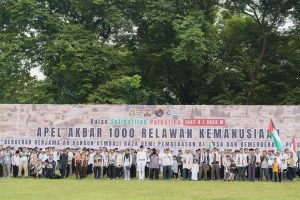
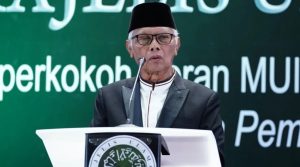




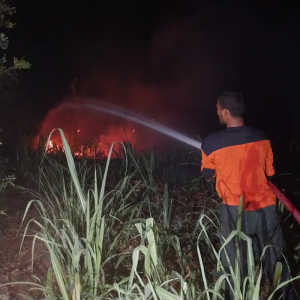
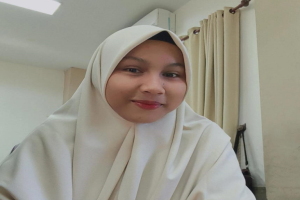

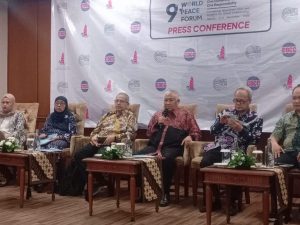















 Mina Indonesia
Mina Indonesia Mina Arabic
Mina Arabic